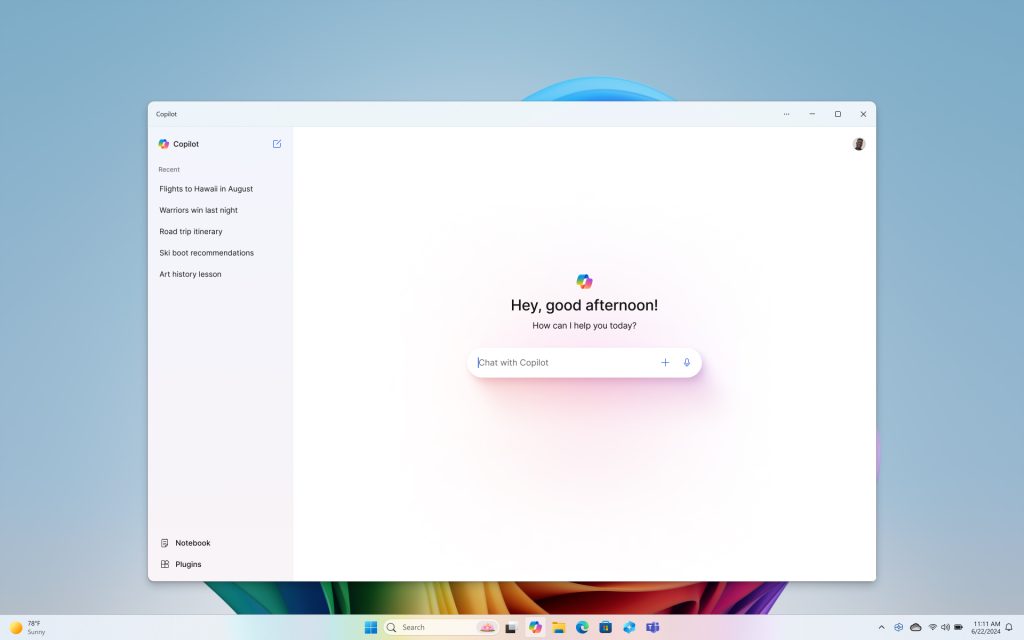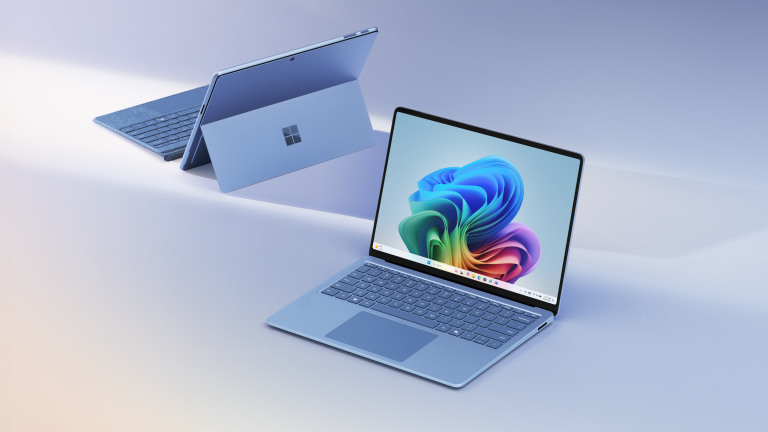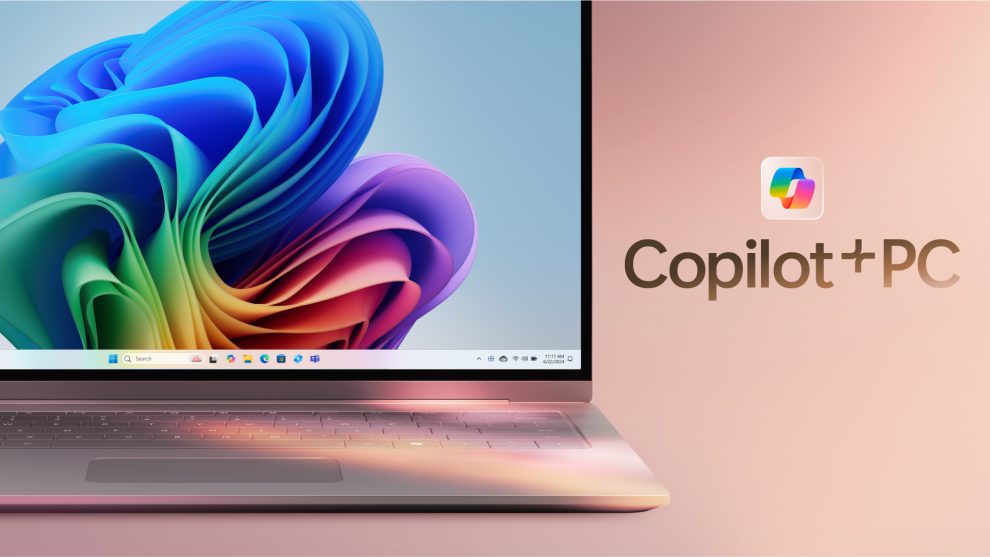The NPU Advantage: Supercharging AI Performance
At the heart of the Copilot+ PC lies the Neural Processing Unit (NPU), a specialized processor designed to handle complex AI workloads. Unlike traditional CPUs that are built for general-purpose computing, NPUs are optimized for the unique demands of AI algorithms, such as deep learning and neural network processing.
Microsoft claims that the NPU in Copilot+ PCs can deliver a staggering 40 TOPS (trillion operations per second) of processing power. To put that in perspective, that’s a significant leap compared to the AI processing capabilities of standard CPUs. This raw power could enable faster, more efficient execution of AI-driven features, potentially leading to a smoother and more intelligent user experience.

Enhancing Productivity and Creativity
To harness the potential of the NPU, Copilot+ PCs come pre-loaded with a suite of exclusive Windows features that leverage AI in innovative ways. These features aim to streamline common tasks, boost productivity, and unlock new avenues for creativity. Let’s take a look at some of the standout offerings:
1. Recall: Never Lose a File Again
We’ve all been there—frantically searching for a misplaced document or struggling to remember where we saved that important presentation. Copilot+ PCs aim to make this frustration a thing of the past with “Recall,” an AI-powered search feature that scans your entire PC and cloud storage for specific content based on keywords or even visual cues.
Imagine being able to retrieve a long-lost document simply by describing its contents or pulling up a cherished photo by mentioning a visual detail. Recall could be a game-changer for anyone who frequently works with large amounts of data or has a habit of misplacing files.
2. Cocreator: Unleash Your Inner Artist
For creatives, Copilot+ PCs introduce “Cocreator,” an AI-powered image generation tool that could revolutionize the way we approach visual content. With Cocreator, users can provide a text prompt or a rough sketch, and the AI will generate unique image variations in real-time, drawing from its deep learning algorithms and vast visual library.
This could be an invaluable tool for graphic designers, illustrators, or anyone looking to quickly generate visual concepts or explore creative possibilities. The ability to iterate on ideas rapidly and see instant results could streamline the creative process and open up new avenues for artistic expression.
3. Live Captions: Breaking Down Language Barriers
In an increasingly globalized world, language barriers can still pose significant challenges. Copilot+ PCs aim to bridge this gap with “Live Captions,” an AI-powered feature that transcribes audio from videos, podcasts, or even real-life conversations in real-time and translates it into over 40 languages.
This could be a transformative tool for individuals who are deaf or hard of hearing, enabling them to participate more fully in digital media and real-world interactions. It could also be a boon for language learners, allowing them to follow along with native content and improve their comprehension skills. In business settings, Live Captions could facilitate smoother communication in multilingual teams and global collaborations.
Navigating the Pitfalls of AI
While the potential of Copilot+ PCs is undeniably exciting, there are also valid concerns and challenges that Microsoft will need to address if these machines are to live up to their promise. Let’s explore some of the key issues:
1. Limited App Support: The Need for Developer Buy-In
One of the biggest questions surrounding Copilot+ PCs is how well existing applications will be able to take advantage of the NPU’s capabilities. For these machines to truly shine, developers will need to optimize their software to leverage the AI processing power on offer. Without widespread developer adoption, the benefits of the NPU could be limited to Microsoft’s pre-loaded features.
To address this, Microsoft will need to work closely with the developer community, providing the tools, resources, and incentives necessary to encourage NPU optimization. Building a robust ecosystem of AI-powered applications will be crucial to the long-term success of Copilot+ PCs.
2. Privacy Concerns: Balancing Innovation and User Trust
As with any AI-driven technology, the extensive use of data and machine learning algorithms in Copilot+ PCs raises valid concerns around privacy and security. Users will want to know exactly what data is being collected, how it’s being used, and who has access to it.
Microsoft has stated that user privacy is a top priority and that all data will be handled securely. However, the company will need to be fully transparent about its data practices and provide users with clear options to control their information. Building and maintaining user trust will be essential if AI-powered features are to gain widespread acceptance.
3. Cost Considerations: Balancing Performance and Affordability
The inclusion of a dedicated NPU in Copilot+ PCs is likely to come at a cost. These specialized processors are not cheap, and their integration could drive up the price point of these machines compared to traditional PCs.
Microsoft will need to strike a careful balance between delivering the performance benefits of the NPU and keeping Copilot+ PCs accessible to a wide range of users. If the price premium is too high, it could limit adoption and hinder the widespread impact of these AI-powered features.

AI as the New Frontier
Regardless of the ultimate success of Copilot+ PCs, their launch represents a significant milestone in the evolution of personal computing. By placing AI at the forefront of the user experience, Microsoft is signaling a future where intelligent assistants and machine learning algorithms are deeply integrated into every aspect of our digital lives.
As AI continues to advance, we can expect to see more and more devices and applications that leverage its capabilities to deliver smarter, more intuitive experiences. From virtual assistants that anticipate our needs to creative tools that collaborate with us in real-time, the potential applications are vast and exciting.
However, as we embrace this AI-powered future, it will be crucial to address the challenges and concerns that come with it. Ensuring user privacy, building robust security measures, and fostering an inclusive ecosystem that benefits users and developers alike will be key to realizing the full potential of AI in personal computing.
A Bold Step Forward
Microsoft’s Copilot+ PCs represent a bold and exciting step forward in the journey toward AI-powered computing. By combining dedicated AI processing power with innovative software features, these machines offer a tantalizing glimpse of what the future might hold.
However, the success of this initiative will depend on Microsoft’s ability to address the challenges and concerns that come with integrating AI at such a deep level. From ensuring developer support and user privacy to balancing performance and affordability, there are significant hurdles to overcome.
As we watch this story unfold, one thing is clear: the era of AI-powered computing is upon us, and its impact will be felt across every aspect of our digital lives. Whether Copilot+ PCs ultimately revolutionize the way we interact with our machines or serve as a cautionary tale, they represent a significant milestone in the ongoing evolution of personal computing.
















Add Comment